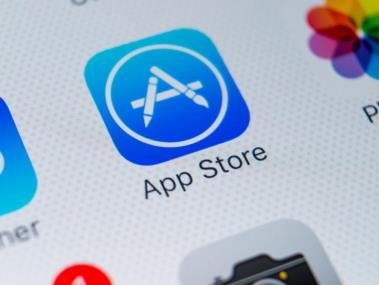Apple App Store for Android: A Dream or Reality?

Apple app store for android apk,The Apple App Store has revolutionized the way we access and consume apps on iOS devices. Its curated ecosystem, strict guidelines, and user-friendly interface have set a high standard for app stores worldwide. But what if you could experience the same seamless app discovery and installation process on your Android device? The idea of an Apple App Store for Android APKs might seem like a distant dream, but let’s delve into the technical challenges, potential benefits, and the future of app distribution to see if it’s a feasible reality.
Understanding the Technical Challenges
One of the primary obstacles to creating an Apple App Store for Android is the fundamental difference between the two operating systems. iOS is a closed ecosystem, tightly controlled by Apple, while Android is open-source and highly customizable. This divergence in software architecture poses significant challenges in terms of app compatibility, security, and user experience.
Compatibility Issues
iOS and Android apps are built using different programming languages and frameworks. iOS apps primarily rely on Swift and Objective-C, while Android apps are predominantly developed using Java and Kotlin. Directly porting iOS apps to Android would require significant code modifications and optimization, which could be a time-consuming and resource-intensive process.
Security Concerns
Apple’s stringent app review process ensures that only high-quality, secure apps make it to the App Store. Android, on the other hand, has a more open approach, allowing developers to distribute apps through various channels, including the Google Play Store and third-party app stores. While this flexibility benefits users, it also exposes them to potential security risks. An Apple App Store for Android would need to implement robust security measures to protect users from malicious apps.
User Experience
Apple’s user interface and user experience (UX) design principles are renowned for their simplicity and elegance. Replicating this experience on Android, which has a different design language and user interaction patterns, could be a complex task. A successful Apple App Store for Android would need to seamlessly integrate with the Android ecosystem while maintaining the core principles of Apple’s design philosophy.
Potential Benefits of an Apple App Store for Android
Despite the challenges, the potential benefits of an Apple App Store for Android are substantial.
Enhanced App Quality
Apple’s rigorous app review process could elevate the quality of apps available on Android. By enforcing stricter guidelines and standards, Apple could help weed out poorly designed, buggy, and malicious apps, improving the overall user experience.
Improved App Discovery
The Apple App Store is renowned for its excellent app discovery features. A similar experience on Android could help users find high-quality apps more easily, reducing the time spent searching for the right apps.
Boosted Developer Ecosystem
An Apple App Store for Android could provide a new platform for developers to reach a wider audience. By offering a more controlled and secure environment, Apple could attract more developers to create high-quality apps for Android.
The Future of App Distribution
The future of app distribution is evolving rapidly. With the rise of cross-platform development frameworks like React Native and Flutter, it’s becoming easier to build apps that can run on both iOS and Android. However, the fundamental differences between the two platforms will likely persist for the foreseeable future.
While an Apple App Store for Android may not be a realistic possibility shortly, it’s an intriguing idea that highlights the potential for innovation and disruption in the mobile app industry. As technology continues to advance, we may see new and innovative ways to distribute and consume apps across different platforms.
Conclusion
The idea of an Apple App Store for Android APKs is a fascinating one, but it’s fraught with technical challenges. While the potential benefits are significant, the reality is that such a venture would require significant investment, expertise, and a willingness to compromise on certain aspects of the Apple ecosystem. For now, it seems more likely that Apple will continue to focus on its platform and ecosystem, while Android will remain an open and diverse platform with a multitude of app distribution options.



